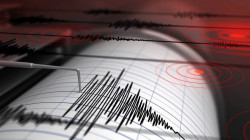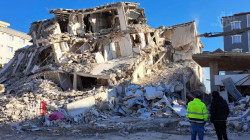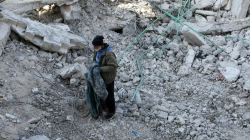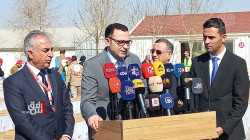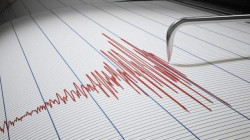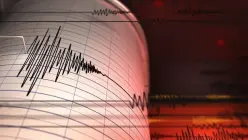Mosul Dam: devastating earthquakes raise concerns over Iraq's water reservoir’s fate
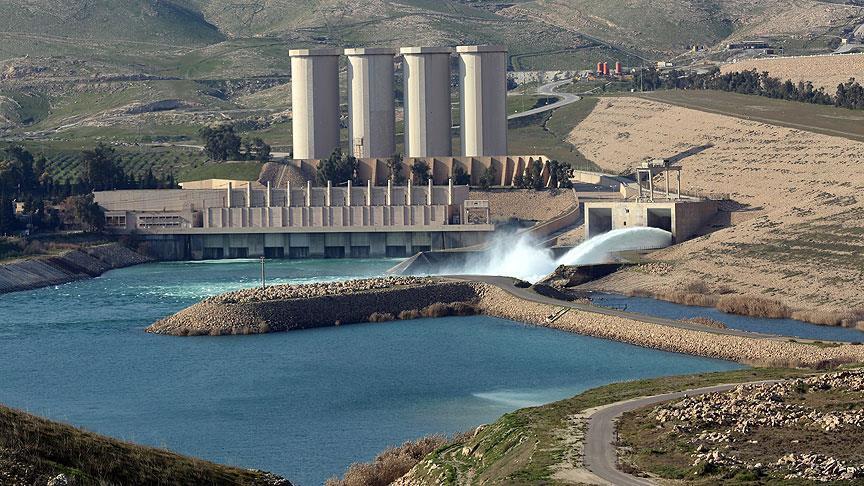
Shafaq News / The devastating earthquake that struck Turkey and Syria three days ago sparked worries that Iraqi dams may be affected by aftershocks, particularly the Mosul Dam.
However, experts explained that these dams could withstand any significant flood wave, whether caused by rain and torrents, the partial or complete collapse of Turkish or Syrian dams, or a policy of partial or complete emptying of one of the dams due to safety measures or development plans. In addition, they confirm that the foundations of the Iraqi dams are intact and were unaffected by the aftershocks of the earthquake.
Dr. Khaled Shamal, the Ministry of Water Resources spokesman, stated to Shafaq News Agency, "the ministry's technical staff contacted the Turkish and Syrian sides, and they assured us that neither the dam bridge nor the hydraulic installations had been damaged."
Shamal noted, "the Iraqi dams, especially the Mosul Dam and the dams in Kurdistan, are subject to a safety program, with periodic and systematic maintenance work", adding, "the Iraqi dams are also safe, and there is no technical problem with their foundations."
"There is a slight increase in water releases as a result of snow and rain, and the ministry has not received any information related to Turkey or Syria emptying part of the strategic storage of dams," he continued, indicating that the process of emptying dams requires a comprehensive assessment of the dam's status, and initial indicators informed the ministry that there are no problems in Turkish dams."
For his part, agricultural expert, Dr. Khattab al-Dhamen, said that "the violent seismic wave that hit southern Turkey and parts of Syria a few days ago, proved the reality of the dangers posed by Turkey's construction of massive dams on the Tigris and Euphrates rivers inside Turkish territory."
He added, "According to geophysical studies, constructing giant dams within an area of seismic activity doubles the likelihood of earthquakes due to their enormous storage capacity and the pressure they pose on the surface of the earth, which increases the likelihood of earthquakes within a mutual causal relation."
Water expert Tahseen al-Musawi pointed out a problem with the "construction of the Mosul Dam" because it was built on limestone terrain with a high percentage of solubility, noting that an Italian company injects it with cement daily.
He added that the Mosul Dam does not have sufficient water storage, as its capacity does not exceed 11 billion cubic meters. Still, its water storage currently does not exceed 3 billion cubic meters."
"The current hype regarding the possibility of dams being affected is exaggerated because building dams, arsenals, reservoirs, and gates require massive amounts of cement, making it difficult for them to be impacted by sabotage, explosions, or even earthquakes."
Al-Musawi continued, "It is well known that when natural calamities strike, dams around the world remain unaffected because no dams have ever collapsed. However, when a dam gives way, it may be because it is old or out of service, or because the terrain on which it was constructed—as in the case of the Mosul Dam—is limestone and dissolving quickly."
Accordingly, he reiterated that there is no danger to the dams, the massive GAP project established by Turkey, the projects established by Iran, and the Tabqa Dam in Syria.
"Iraq's reservoirs are practically dry despite having a storage capacity of more than 160 billion cubic meters, due to three years of drought, the construction of dams by Turkey and Iran, and the control over Iraq's water shares."
He concluded by referring to Iraq's readiness to receive any amount of water, pointing out that "natural lakes and the Marshes - which have been subjected to drought - can accommodate more than 20 billion cubic meters. Also, the Tharthar lake can accommodate 80 billion cubic meters, not to forget the rest of the reservoirs, dams, natural lakes, and water bodies."
